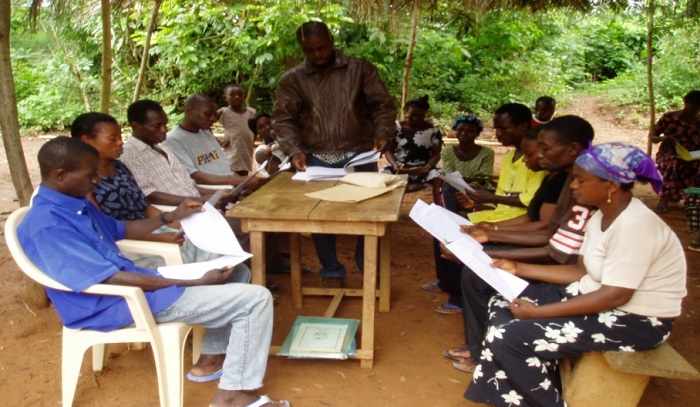
Engendering adult learning for national development
It was heart-warming to hear from President Nana Addo Dankwa Akufo-Addo during the campaign season of the 2016 presidential and parliamentary elections that he would bring Adult Education (AE) into the communities. If this statement made is not heart-warming, what else is?
Advertisement
It will be recalled that the adult literacy drive popularly known as mass education movement, an aspect of AE, implemented by the colonial masters in the Gold Coast in the early 1940s was an attempt to address the problems of illiteracy, poverty, disease and misgovernment.
The most important immediate objective of the programme was to prepare people to accept new ideas and apply new techniques in their fields of endeavour. It was significant because the problems identified are closely related to Lord Beveridge’s five giants; want, disease, ignorance, squalor and idleness. These problems occur mostly in developing countries, including Ghana, but even globally, illiteracy is found as a single factor which can accentuate ignorance and encourage the growth of other problems.
We are all witnesses to the 2012 and 2016 presidential and parliamentary elections in which rejected ballot papers, in terms of ranking in the presidential elections, occupied the third position. This is just a tip of challenges posed by illiteracy to the citizenry, not to talk about the effects it has on one’s health, personal and national development.
It is interesting to learn, however, that throughout the ages, many AE ventures were advanced by men and women who are passionate about reforming society. This piece attempts to throw light on the statement that was made by the President and offer strategies for implementation.
Adult Education (AE)
The United Nations Education, Scientific and Cultural Organisation (UNESCO) defines AE as a process whereby men and women (alone, in groups, or in institutional settings) seek to improve themselves or their society by increasing their skill, their knowledge or their sensitiveness. Thus, any process by which individuals, groups or institutions try to help men and women improve in these ways.
From the definition, one thing stands out clear, learning. Knowledge, skills, attitudes and sensitiveness can only be acquired if the citizenry actively engage in meaningful learning. And what is important here is that learning is ubiquitous, and goes beyond education, training and schooling. It is a lifelong and lifewide activity.
During the 1990s, it became clear that adult learning must be an important part of all strategies for development, hence various agencies of the United Nations organised series of world conferences essentially to address the issue of education for all, the environment, human rights, population, social development, the status of women, human settlements and food security. Each of the conferences recognised that progress would be dependent on the adult members of society transforming their life circumstances and gaining greater control over their lives.
To achieve this change, the adult population requires new knowledge, skills and attitudes, thus making adult learning one of the powerful forces for promoting people-centred development. Perhaps the President and his incoming government are envisaging an integrated people-centred development.
This probably may be inferred from the manifesto promises, including the ‘One district, one factory.’ AE offers equal opportunity for citizens’ participation such that the voiceless, the disadvantaged, and the marginalised in the society can learn to gain their voice, adjust to changes, become empowered and recognised in their communities.
When community members acquire the requisite knowledge, skills, values and understanding through AE, they would become prepared to actively participate in the development of their communities. In any event, AE is based on the concept of a multi-disciplinary approach, and thus serves as an integral part of nation building. It is a group activity directed at some community improvement
Community improvement
Of course, individual needs must be met in any AE experience, but the emphasis remains on the total community improvement. It has to do with balancing the intervention of individual life and the intervention in the community. It is a problem-oriented educational process, and as a country, the biggest challenge facing us now is unemployment.
As you engage adult population to learn in groups using problem posing and solving approaches, including brainstorming, dialoguing, discussing and questioning, they respond by finding solutions to their problems.
The education of adult population is also a key to sustainable development in the 21st century in which technology adds a new dimension of urgency to learning. Change is the name of the game in this century in which the digital revolution has raced into all facets of our lives- from how we do business, learn and even communicate with friends and family members.
The digital divide will not become a learning divide if, and only if, we continue to encourage and motivate the adult population to learn in whatever learning settings they find themselves in. This should be the case because in certain jurisdictions, especially in Sweden, citizens are not too old to learn something new. In fact, some of the settings one learns could be the home, church, mosque, club, community, workplace, as well as in the formal educational and training institutions.
The writer is a lecturer/coordinator,
Accra Learning Centre & Tema Office,
School of Continuing & Distance Education (SCDE),
University of Ghana, Legon.



